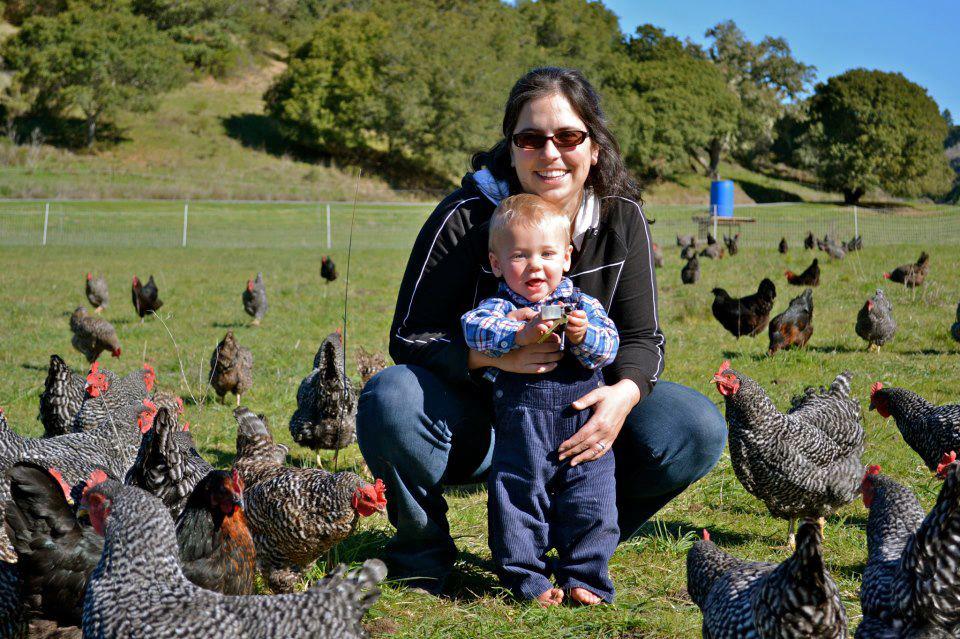Day 7- National Farmworker Awareness Week
ShaeLynn grew up in California and in July of 2010 moved to Pescadero where she and her husband Kevin started their ranch, Early Bird Ranch. Neither had come from a farming family and, in fact, the couple planned on becoming professors. But as they were applying for PhD programs, they decided that path was not for them.
“We chose to settle in Pescadero because… we could see the innovation in agriculture that was taking place here—there are a surprising number of small organic and sustainable farms, and we wanted to be a part of that community,” says ShaeLynn. “When we got here, we made an effort to get involved in the community by joining the Pescadero Community Church, and participating in events at Puente.”
ShaeLynn and Kevin know they represent the new face of farming. They raise sustainable poultry, pork, rabbit, and eggs – a far cry from the factory farms that produce most of the nation’s meat supply. They join a growing number of young and educated Anglos, mostly non-immigrants, that are starting and working on farms (though ShaeLynn herself is a member of the Hoopa Valley Tribe in northern California). They are driven to action because they care about their food and where it comes from– a group that doesn’t deal with the struggles of immigration status, inability to see their family, or broken laws, but who work hard to put healthy food on our tables.
A normal day for ShaeLynn begins at sunrise and ends well into the evening. She says, “A lot of people see owning your own farm as really idyllic and peaceful. And it is, some of the time! But it also comes with a lot of stress of responsibility, stress on your body, stress of balancing your time between the business and your family. A lot of work goes into getting my chicken to your table, and while I feel blessed to have the job I have, it involves a lot of sacrifices in potential earnings, physical pain, and job security.”
She enjoys most aspects of her job– working outside and with her family, as well as contributing to providing better food options to customers. “I think my job is very important—more and more people value food raised responsibly in a way that values the land, the animal, the farmer, and the community, and I’m happy to provide it for them.”
ShaeLynn did not elect to remain anonymous, a fact in and of itself represents a stark contrast from the reality of the immigrant farmworker experience. Despite similar callouses and sore backs, she and her husband are their own bosses. They own their own fate, have a community who embraces and supports them, and have goals that do not feel unreachable.
Looking into the future, ShaeLynn muses, “I dream of raising my son and other children on the farm where they have a clear connection to their food and nature, so that they value the food they put in their bodies and the work that goes into producing it.”





